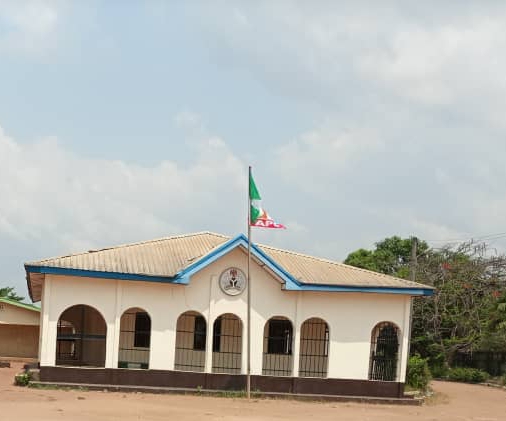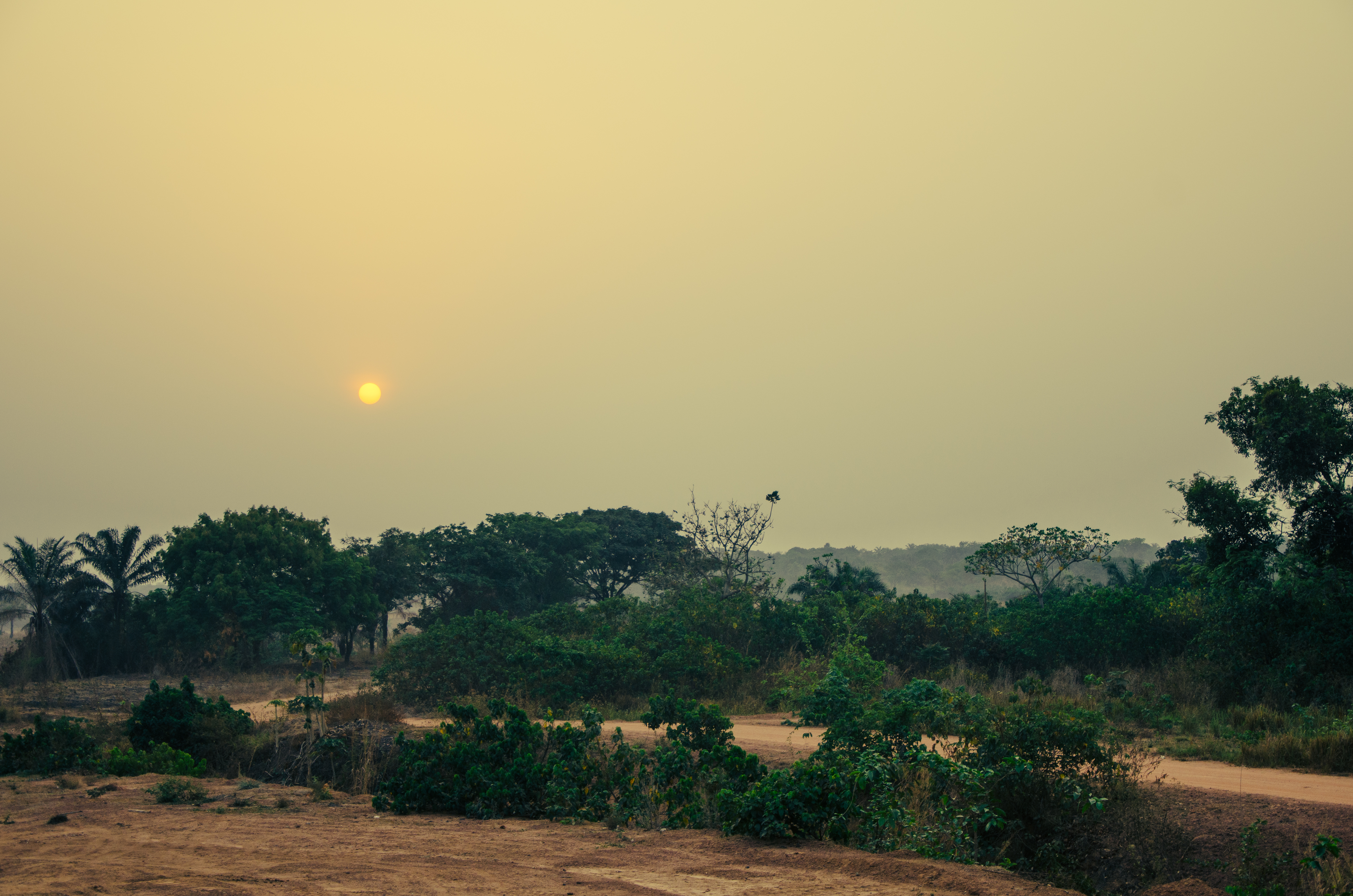|
Mbaise
Mbaise is a region in Imo State in southeastern Nigeria. In the heart of Igboland, the region includes several towns and cities. It is a group of indigenous clans, connected by intermarriage. With a population density of over 1,000 people per square kilometer, Mbaise is West Africa's most densely-populated area; its 2006 population was 611,204. The name "Mbaise" was derived from five clans: Agbaja, Ahiara, Ekwereazu, Ezi na Ihite and Oke Uvuru. The three local government areas of Mbaise cover about ; Aboh Mbaise covers , Ahiazu Mbaise covers , and Ezinihitte Mbaise covers . History Mbaise came under British rule in 1902 during the Anglo-Aro War, when the British Aro Expeditionary Force subdued the Aro Confederacy in Owerri and Mbaise. By 1906, at the conclusion of the operation, present-day Mbaise was united under British control with some local autonomy. To supervise the clans, a native court was established in Obohia in 1907 and transferred to Nguru in 1909. In 1929, ... [...More Info...] [...Related Items...] OR: [Wikipedia] [Google] [Baidu] |
Aboh Mbaise
Aboh Mbaise is a Local Government Area of Imo State, Nigeria. Its headquarters is in the town of Aboh. It has an area of 184 km and a population of 194,779 at the 2006 census. There are different towns in Aboh-Mbaise such as Nguru, Uvuru, Mbutu, okwuato, Lorji, Amuzu, Enyiogugu. Aboh-Mbaise has rich cultural value. Nguru, in particular, celebrates its Itu aka Nguru Uboma ahia ise cultural festival every year in February. ITU AKA Nguru Uboma Ahia Ise holds at Nguru Centre mostly last Saturday of February each year. The ceremonies start with the Ike Aka and continue with the Egwu Onwa. ITU AKA Ngwuru Uboma Ahia Ise is a celebration that dates back in history. Itu Aka literally means "pointing out" or showing. In the days when Nguru and his children settled in Nguru Land, farming was the main occupation of the people and was done by shifting cultivation, whereby the people will farm in one area in one year and move to another area another year. The ceremony used to be a reli ... [...More Info...] [...Related Items...] OR: [Wikipedia] [Google] [Baidu] |
Ahiazu Mbaise
Ahiazu Mbaise is a Local Government Area of Imo State, Nigeria. It is as a result of a merger between Ahiara and Ekwerazu. Its headquarters are in the town of Afo oru. There are fourteen (14) towns that make up Ahiazu Mbaise. They include; Mpam, Ihitte Afor, Opara-Nadim, Akabor, Ogwuama/Amuzi, Obodo-Ujichi, Otulu/Aguneze, Umu-OKrika, Obohia, Ekwereazu, Obodo-Ahiara, Lude/Nnara-Mbia, Ogbe, Oru - Ahiara. The 12 wards in Ahiazu Mbaise local government area are: Amuzi/Ihenworie, Mpam, Nnarambia, Obohia/Ekwereazu, Ogbe, Ogbor/Umueze, Okrika Nweke, Okrika Nwenkwo, Oparanadim, Oru-na-Lude, Otulu/Aguneze, Umunumo/Umuchieze. It has an area of 114 km and a population of 170,902 at the 2006 census. The local government area is bounded to the north by Isiala Mbano and Ehime Mbano, to the east by Obowo and Ihitte Uboma, to the south by Ezinihitte Mbaise and Aboh Mbaise and to the west by Ikeduru. The postal code A postal code (also known locally in various English-speaking ... [...More Info...] [...Related Items...] OR: [Wikipedia] [Google] [Baidu] |
Imo State
Imo State ( ig, Ȯra Imo) is a state in the South-East geopolitical zone of Nigeria, bordered to the north by Anambra State, Rivers State to the west and south, and Abia State to the east. It takes its name from the Imo River which flows along the state's eastern border. The state capital is Owerri and its state nickname is the "Eastern Heartland." Of the 36 states, Imo is the third smallest in area but is fourteenth most populous with an estimated population of over 5.4 million as of 2016. Geographically, the State is divided between the Niger Delta swamp forests in the far east and the drier Cross–Niger transition forests in the rest of the State. Other key geographical features are the state's rivers and lakes with the Awbana, Imo, Orashi, and Otamiri rivers along with the Oguta Lake in western Imo State. Modern-day Imo State has been inhabited for years by various ethnic groups, primarily the Igbo people with the Igbo language serving as a lingua franca ... [...More Info...] [...Related Items...] OR: [Wikipedia] [Google] [Baidu] |
Ezinihitte Mbaise
Ezinihitte Mbaise is a local Government Area in Imo State, Nigeria. Its headquarter is in Itu, Imo State, Itu. External links Amumara Autonomous Community Local Government Areas in Imo State Towns in Imo State Local Government Areas in Igboland {{Imo-geo-stub ... [...More Info...] [...Related Items...] OR: [Wikipedia] [Google] [Baidu] |
Ezi Na Ihite
Ezinihitte Mbaise is a local Government Area in Imo State, Nigeria Nigeria ( ), , ig, Naìjíríyà, yo, Nàìjíríà, pcm, Naijá , ff, Naajeeriya, kcg, Naijeriya officially the Federal Republic of Nigeria, is a country in West Africa. It is situated between the Sahel to the north and the Gulf o .... Its headquarter is in Itu. External links Amumara Autonomous Community Local Government Areas in Imo State Towns in Imo State Local Government Areas in Igboland {{Imo-geo-stub ... [...More Info...] [...Related Items...] OR: [Wikipedia] [Google] [Baidu] |
Igboland
Igboland ( Standard ), also known as Southeastern Nigeria (but extends into South-Southern Nigeria), is the indigenous homeland of the Igbo people. It is a cultural and common linguistic region in southern Nigeria. Geographically, it is divided by the lower Niger River into two sections: an eastern (the larger of the two) and a western one. Its population is characterised by the diverse Igbo culture and the speakers of equally diverse Igbo languages. Politically, Igboland is divided into several southern Nigerian states; culturally, it has included several subgroupings, including the Anioma, the Ngwa, the Aro, the Ezza, the Ibeku, the Ohuhu, the Oboro, the Ikwerre, the Ogba, the Omuma, the Ohafia, the Oyigbo, the Mbaise, the Isu and the Ekpeye. Territorial boundaries Igboland is surrounded on all sides by large rivers, and other southern and central Nigeria indigenous tribes, namely Igala, Tiv, Yako, Idoma and Ibibio. In the words of William B. Baikie, "Igb ... [...More Info...] [...Related Items...] OR: [Wikipedia] [Google] [Baidu] |
Ahiara
Ahiara is a city in Mbaise, Imo State, Nigeria. The city stands about 16 miles between Owere and Umuahia. It was the location of Chukwuemeka Odumegwu Ojukwu's Ahiara Declaration during the Nigerian Civil War. It is the location of the Catholic diocese in Mbaise. The first recorded Ahiara contact with the Europeans was around 1905 when the British Aro expedition got mixed up in inter-village war which eventually had Dr. Steward a victim, as a consequence the Ahiara people were severely punished by the British forces with an invasion which forced many citizens to flee and never return. The Ahiara Slogan is ''Decent Dexterity''. Origin Ahiara was founded by a man of that name. He was the son of Anunu, popularly called ''Odo ji Anunu''. His sibling Avuvu became a part of Ikeduru. Etymologically, the name Ahiara is a type of plant among the Igbo people. The leaves of this plant signify peace. The great Ezes of Igbo used to travel with Ahiara leaves to guarantee peaceful journeys ... [...More Info...] [...Related Items...] OR: [Wikipedia] [Google] [Baidu] |
Ekwereazu
Ekwereazu (or Ekwerazu) is a town in Mbaise, Imo State, Nigeria Nigeria ( ), , ig, Naìjíríyà, yo, Nàìjíríà, pcm, Naijá , ff, Naajeeriya, kcg, Naijeriya officially the Federal Republic of Nigeria, is a country in West Africa. It is situated between the Sahel to the north and the Gulf o .... It is made up of six communities: Oparanadim, Mpam, Ihitteafoukwu, Umuokirika, Obohia and Ekwereazu Town. References Towns in Imo State {{Imo-geo-stub ... [...More Info...] [...Related Items...] OR: [Wikipedia] [Google] [Baidu] |
Subsistence Agriculture
Subsistence agriculture occurs when farmers grow food crops to meet the needs of themselves and their families on smallholdings. Subsistence agriculturalists target farm output for survival and for mostly local requirements, with little or no surplus. Planting decisions occur principally with an eye toward what the family will need during the coming year, and only secondarily toward market prices. Tony Waters, a professor of sociology, defines "subsistence peasants" as "people who grow what they eat, build their own houses, and live without regularly making purchases in the marketplace." Despite the self-sufficiency in subsistence farming, most subsistence farmers also participate in trade to some degree. Although their amount of trade as measured in cash is less than that of consumers in countries with modern complex markets, they use these markets mainly to obtain goods, not to generate income for food; these goods are typically not necessary for survival and may include ... [...More Info...] [...Related Items...] OR: [Wikipedia] [Google] [Baidu] |
Chinua Achebe
Chinua Achebe (; 16 November 1930 – 21 March 2013) was a Nigerian novelist, poet, and critic who is regarded as the dominant figure of modern African literature. His first novel and '' magnum opus'', ''Things Fall Apart'' (1958), occupies a pivotal place in African literature and remains the most widely studied, translated, and read African novel. Along with ''Things Fall Apart'', his ''No Longer at Ease'' (1960) and ''Arrow of God'' (1964) complete the so-called "African Trilogy"; later novels include ''A Man of the People'' (1966) and ''Anthills of the Savannah'' (1987). He is often referred to as the "father of African literature", although he vigorously rejected the characterization. Born in Ogidi, British Nigeria, Achebe's childhood was influenced by both Igbo traditional culture and postcolonial Christianity. He excelled in school and attended what is now the University of Ibadan, where he became fiercely critical of how European literature depicted Africa. Movin ... [...More Info...] [...Related Items...] OR: [Wikipedia] [Google] [Baidu] |
Things Fall Apart
''Things Fall Apart'' is the debut novel by Nigerian author Chinua Achebe, first published in 1958. It depicts pre-colonial life in the southeastern part of Nigeria and the invasion by Europeans during the late 19th century. It is seen as the archetypal modern African novel in English, and one of the first to receive global critical acclaim. It is a staple book in schools throughout Africa and is widely read and studied in English-speaking countries around the world. The novel was first published in the UK in 1962 by William Heinemann Ltd, and became the first work published in Heinemann's African Writers Series. The novel follows the life of Okonkwo, an Igbo ("Ibo" in the novel) man and local wrestling champion in the fictional Nigerian clan of Umuofia. The work is split into three parts, with the first describing his family, personal history, and the customs and society of the Igbo, and the second and third sections introducing the influence of European colonialism and C ... [...More Info...] [...Related Items...] OR: [Wikipedia] [Google] [Baidu] |
Itu, Akwa Ibom
Itu is located in the southeast of Nigeria and is a Local Government Area of Akwa Ibom State. The Local Government Area occupies a landmass of approximately 606.1 0 square kilometers. It is bounded in the North and North-East by Odukpani in Cross River State and Arochukwu in Abia State, in the West by Ibiono Ibom and Ikono Local Government Areas, in the South and southeast by Uyo and Uruan Local Government Areas, respectively. Towns and Villages in Itu LGA The following Towns and villages that make up Itu LGA, they are: Oku, Obot Etim, Mbiabo, Ema Itam, Ikot Annie, Ekit Itam, Obong Itam, Ekiri Itam, Mbak Atai, Ikot Ayan, Ekim itam Ikot Andem Itam Ikot Akpan, Abong, Mbiatok Itam, Mbiaku Itam, Mmkpeti, Efe Itam, Afaga Itam Akon Itam Ayadehe, Ibam, Adang Itam Ikot Anyan Ntiat Ikot Ukono, Ikot Ebom Itam; Ikot Ekang; Ikot Ekwere Itam; Ikot Emien Itam; Ikot Etpuk; Ikot Mbonde Itam; Ikot Obio Atai I; Ikot Obio Enang; Ikot O ... [...More Info...] [...Related Items...] OR: [Wikipedia] [Google] [Baidu] |




